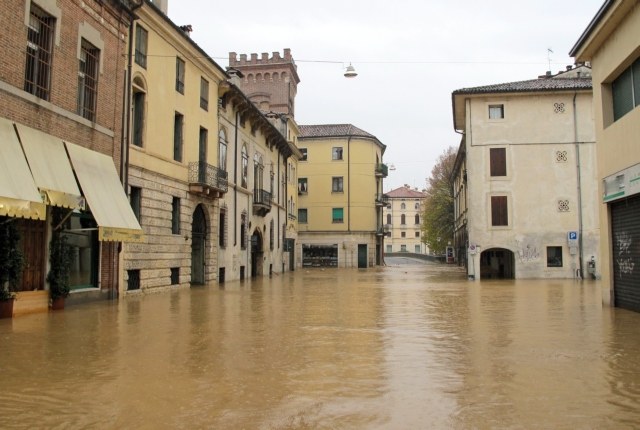We need to move beyond the obvious observation that the climate has changed. The floods that have recently affected Emilia-Romagna, Sicily, and the Valencia region in Spain represent an extraordinary emergency and highlight the need for a strategic approach to reduce the risks associated with increasingly intense weather events.
For this reason, experts from the RETURN Foundation—a PNRR partnership created to address natural and anthropogenic risks—have released a policy document listing the research and action priorities needed to make such events less devastating and deadly.
The document, presented at the Dissemination Workshop of RETURN in Bologna from 27 to 29 November, highlights how climate change is causing more sudden and intense rainfall. Combined with land transformations over recent decades, this is increasing the frequency and severity of these phenomena, potentially challenging even the most advanced alert systems.
“Multiple risks, not solely linked to climate change, contribute to making these floods so destructive,” explains Alberto Montanari, Professor of Hydraulic Engineering at the University of Bologna and one of RETURN’s scientific coordinators. “This is why it is crucial to work on adapting infrastructure and improving watercourse maintenance.”
According to researchers, saving lives and limiting damage requires immediate action, including improvements to infrastructure and measures across all technical and social levels affected by climate risks. It is essential to introduce shared practices—supported by citizens—and regulations mandating periodic safety assessments of land and infrastructure while considering the rapid pace of climate change.
With these goals in mind, the RETURN project is developing climate scenarios using advanced, high-resolution spatial models to identify the most vulnerable areas. The aim is to map hazard and vulnerability in urban and rural territories, also leveraging innovative technologies like digital twins. Additionally, educational campaigns are being promoted to raise awareness among citizens and institutions about climate risks and best practices for land management.
“Only through strong interdisciplinary collaboration, like that within RETURN, and close synergy between research, institutions, and communities can we tackle such complex challenges,” confirms Andrea Prota, Professor of Structural Engineering at the University of Naples Federico II and President of the RETURN Foundation.
RETURN is one of 14 “Extended Partnerships” under the National Recovery and Resilience Plan (PNRR).
It focuses on studying natural and anthropogenic risks, including water-related ones like floods, droughts, and coastal events, as well as landslides, earthquakes, volcanic eruptions, and environmental contamination. Coordinated by the University of Naples Federico II, the project involves major Italian universities and public and private research centres. Among its key players is the University of Bologna, which leads Spoke DS: Science underpinning Climate Services for risk mitigation and adaptation, aimed at defining innovative methods to improve climate, hydrometeorological, and meteorological and marine forecasts at the local scale.

